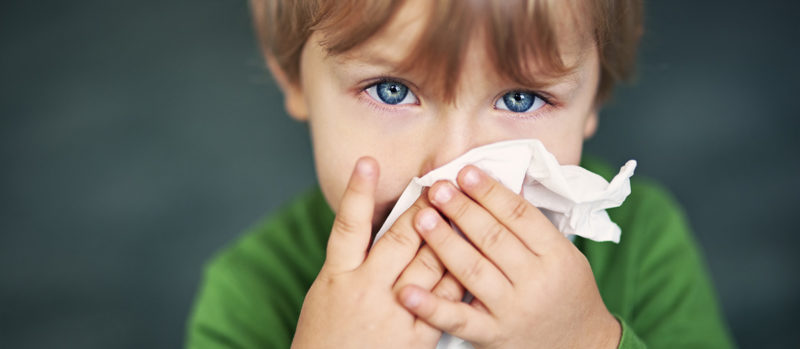Hepatitis in kids has been in the news recently, in particular a specific type called hepatitis of unknown origin. What’s causing this, and do you need to be on the lookout for it in your child? We asked two of our experts for input. Here’s what they shared with us.
7 THINGS TO KNOW ABOUT HEPATITIS OF UNKNOWN ORIGIN IN KIDS
- The CDC is currently investigating an outbreak of children with hepatitis of unknown origin.
The Centers for Disease Control and Prevention (CDC) is responsible for responding to public health concerns in the community. When there is a cluster of events that occur, the CDC investigates to see if they are isolated to a particular region or if they’re occurring elsewhere, and why.
Nearly a year ago, the CDC was made aware of clustered cases of unexplained hepatitis in kids, and it wasn’t clear why they were happening. That began the CDC’s investigation into what’s going on.
- Most children are vaccinated against several types of hepatitis.
Hepatitis is a general term that refers to a sore or inflamed liver. There are a variety of causes of hepatitis in children, including:
- Infections, in particular viral infections
- Disorders in which the immune system attacks the liver for some reason
- Genetic disorders that people are born with
- Medication side effect
As part of routine childhood vaccinations, most children have been immunized against hepatitis A and hepatitis B, which can both cause serious illness.
When most people hear the term “viral hepatitis,” they immediately think of hepatitis A, B, or C. (There are also types D and E.) However, the children affected by this outbreak did not have any of these types of hepatitis.
When the cause of a case of hepatitis can’t be determined, it’s referred to as hepatitis of unknown origin.
- It is typical for doctors to see cases of hepatitis of unknown origin.
Often we are able to determine the cause of hepatitis. However, in spite of all of our diagnostic testing, and in spite of how advanced we are with our knowledge of liver disorders, there are still a fair number of cases where we cannot identify a cause of hepatitis.
In this outbreak, kids were experiencing rather serious illness, which is likely why the CDC started their investigation.
- Hepatitis can range from mild to severe.
In cases of mild hepatitis, a child may not have any symptoms at all and feels well.
Moderate cases may present as a child not feeling well, not eating or drinking, vomiting, and/or possibly having high fevers.
In very advanced or severe cases children may appear jaundiced, where they have a yellowish tinge to their eyes or skin. That generally indicates a more severe form of hepatitis.
In very severe cases, hepatitis can be life-threatening and can damage the liver so much that if there’s not a particular treatment we can offer, we have to consider liver transplantation. That is very rare, however.
- The CDC is looking into both adenovirus and COVID-19 in relation to this outbreak.
As part of the CDC’s investigation, they are trying to understand the underlying reason why the children in these clusters have had hepatitis.
Adenovirus is one of the most common childhood viruses that kids get. It can cause a whole spectrum of different illnesses, from simple conjunctivitis (pink eye) to coughs, colds, diarrhea, and unexplained fever. It can also cause an inflammation of the liver. In about half of the cases of this outbreak, there’s been evidence that a child has had adenovirus.
There’s still a lot of work to be done to understand what adenovirus’s role might be in these cases. It might be present because it’s a really common virus, or it could potentially be associated with the hepatitis itself.
Likewise, SARS-CoV-2, the virus that causes COVID-19, is being studied in relation to these cases. We know acute COVID infection can have a variety of gastrointestinal symptoms, including vomiting and diarrhea. It can also cause a mild hepatitis in otherwise healthy kids, and in children who already have liver problems to begin with.
What we don’t yet know is whether prior infection with COVID may somehow put children at risk for the form of severe hepatitis showing up in this outbreak. Given the timing of these events, we do know that these cases are not associated with COVID-19 vaccinations.
- Call the doctor if your child is jaundiced.
As we mentioned previously, hepatitis can have many symptoms. It’s best to call your doctor if your child isn’t feeling well, as they can determine next steps to take.
If your child is jaundiced—meaning if they have a yellow discoloration of the eyes and/or skin—call your provider right away. If it’s after hours or your doctor isn’t available, take your child to urgent care or the emergency room.
- Most of the kids involved in this outbreak recover and do well.
The most important thing for parents to know is that these cases of hepatitis of unknown cause are exceptionally rare. Even when these rare cases do happen, the vast majority of kids recover and do well.
Editor’s Note: Kathleen M. Campbell, MD, contributed to this blog post and the companion podcast. Dr. Campbell is an assistant professor of pediatrics in the Division of Gastroenterology, Hepatology and Nutrition and the Pediatric Liver Care Center. She has more than 20 years of experience with Cincinnati Children’s.
Learn more on the podcast
Drs. Campbell and Danziger-Isakov recently discussed this outbreak of hepatitis of unknown origin in kids on the Cincinnati Children’s Young & Healthy Podcast. Listen to the full episode to learn more. Find the Young & Healthy podcast in the App Store, on Google Play, or wherever you get your podcasts.




